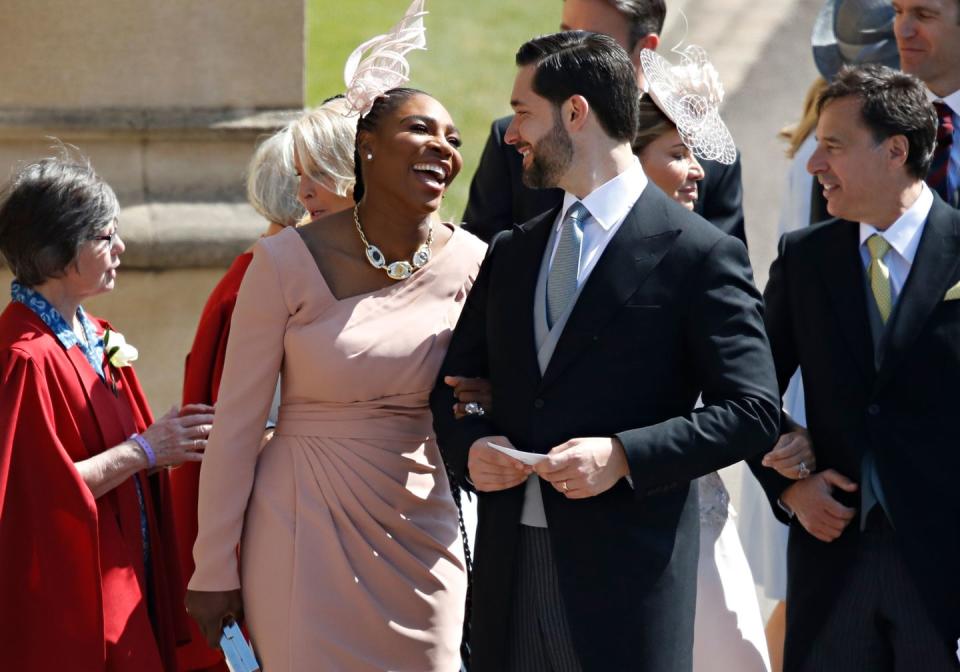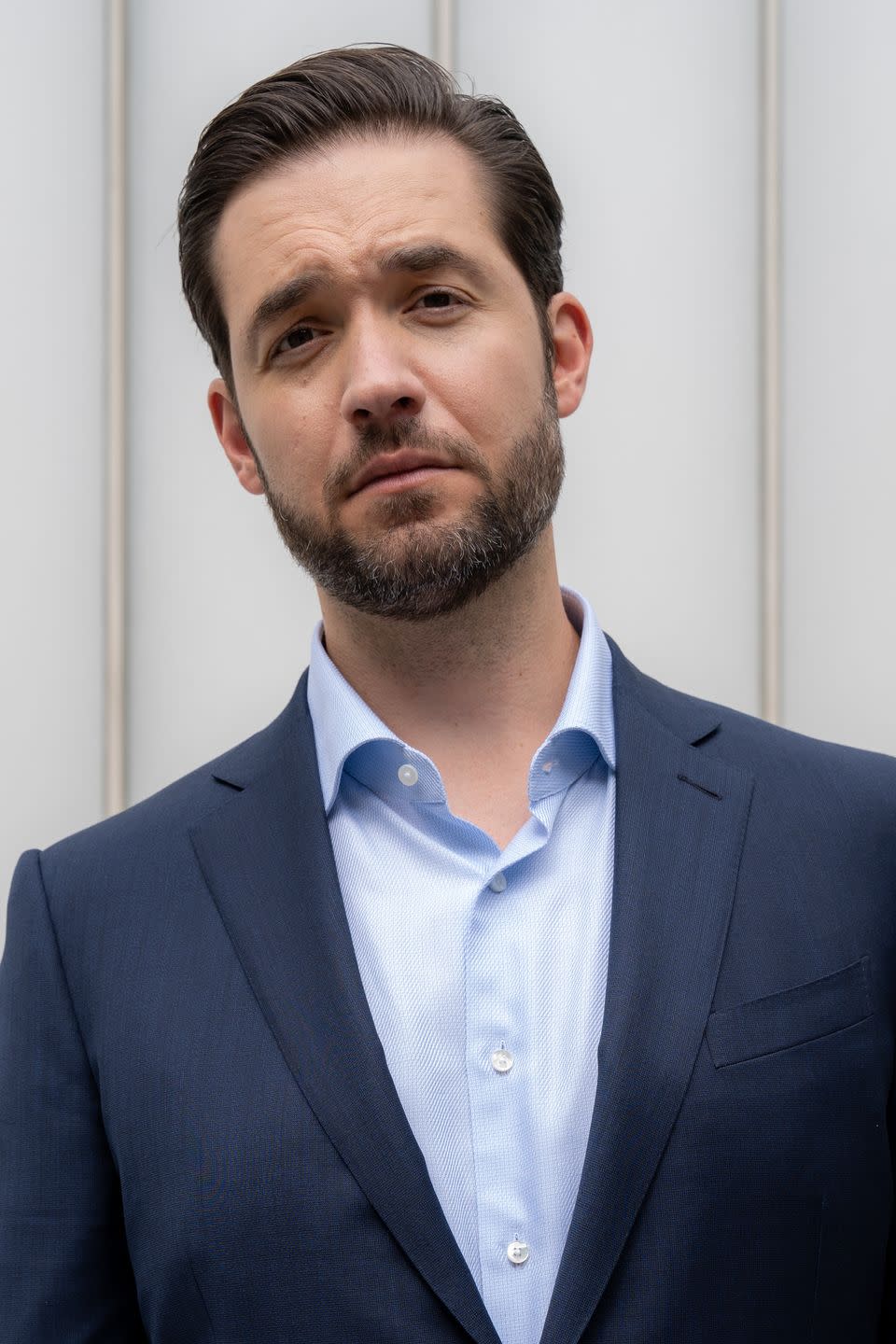Reddit Co-Founder Alexis Ohanian Talks Growing Up Online And The Future Of The Internet

As the co-founder of Reddit, the third most popular website in the western hemisphere, you wouldn’t blame Alexis Ohanian for carrying an ego. But then, when you’re married to seven-time Wimbledon champion Serena Williams, it’s presumably difficult to get too carried away with yourself.
He’s often referred to himself as a “tennis husband” and has disavowed the type of toxic masculinity that stops men supporting and championing the women in their lives.
We spoke to the man himself about modern masculinity, his style glow-up and the future of the internet.
So what does masculinity mean to you in 2019?
I’ve had a lot of time to think about this, especially in the last two years since becoming a dad. I think about it mostly through the lens of what I want masculinity to look like for my daughter. So the first thing that comes to mind is around duty and a sense of purpose to the family.
You know, I watched Game of Thrones differently after getting married and having a kid. Not that I'm out here, you know, advocating for a lot of the really horrific things that people did on behalf of their house. But I kind of understood where they were coming from. Or at least I understood it far, far better once I had a house of my own, so to speak.

Who were your heroes?
The name that doesn't resonate with anyone would be the one in my household: my dad. In particular, the way that I saw him take up his responsibility to be there and support my mum, his wife, when she was diagnosed with terminal brain cancer. And the breast cancer before that.
Other than that, the first thing that came to mind was comic book superheroes. My two favourites were Spider Man and The Punisher, which were on totally opposite ends of the superhero spectrum. I mean, I wouldn't necessarily advocate for Spider Man and The Punisher to be icons in that way.

The advice I give founders is: don’t bother admiring the whole person. Find specific things about them that you admire, and discard the things you don’t. Because none of us are perfect.
Did you grow up on the internet? How did that impact you?
When I got the internet during high school, that was when I really learned to learn. That’s where I first got into programming, initially with web design on GeoCities like a lot of people. When I wanted to do something I didn’t know how to do, I could turn to message boards, or some enterprising person who had built a tutorial page. That was a magical thing. Whether in programming or in life, there’s probably someone else who’s done it before and figured out the solution.
My first sort-of business was freeasabird.org, where I would build free simple websites for non-profits. I would advertise on message boards and it was empowering, because these were adults who had no idea they were talking to a high school kid. All these people knew me for was my ability.
Do you think it’s harder growing up online nowadays?
I think there’s a transition phase that we’re in [which will last] until digital natives are the oldest people in the generation. Until there exists a time when everyone has the baggage of awkward meme videos and what have you from high school, and we’re in a mutually assured destruction-type situation, then I think there’s always that tension and a potential for conflict.
But I think there is a new opportunity for plugged in, active young people. We have 16- and 17-year-old climate activists running the world right now, and Greta gives me a lot of hope. She is a way more impressive version of the 16-year-old on his computer tricking adults into letting him build websites for their non-profits. She's using the exact same technology to bring about really important massive global movement. Like, holy shit! It's incredible to see.
You campaign around 'open internet' issues. What kind of threat does government intervention pose?
I want to advocate for the government taking a role to ensure a respect of privacy and the values we believe in. The biggest risks that come from government intervention around content is that what is and isn't allowed, and what is and isn't supported, ends up changing with whoever's running things.
I also hope to have more platforms stepping up to say: 'Hey, non consensual nudity, for instance, is not allowed on our platform, but we don't need to wait for a law to stop it'. But I'm really hopeful, because there are techniques in artificial intelligence and machine learning that will help us police problematic content and encourage a more positive conversation. We've even seen a difference just from having software, quote-unquote, read the content [a user is about to post] and just say, 'Hey, are you sure you want to post that? Here's our content policy'. Being able to prompt them in that moment has a really, really meaningful impact.
Finally, how has your style changed over the years?
I hope it's gotten better. For most of college and probably my twenties I didn't put much effort in. Just the 'tech 101' of hoodie, T-shirt and jeans. But then around 30 I realised it was time to start dressing like an adult, and I gotta say, having a fashion designer girlfriend and then wife did not hurt. I'd be lying if I said her fashion savviness didn't want me to step up. I'm a competitive person, so she raised my game.
This interview has been edited and condensed for clarity.
Alexis Ohanian is an ambassador for Zegna’s #WhatMakesAMan campaign alongside Mahershala Ali. Watch the #WhatMakesAMan campaign videos at zegna.co.uk
Like this article? Sign up to our newsletter to get more delivered straight to your inbox
You Might Also Like

